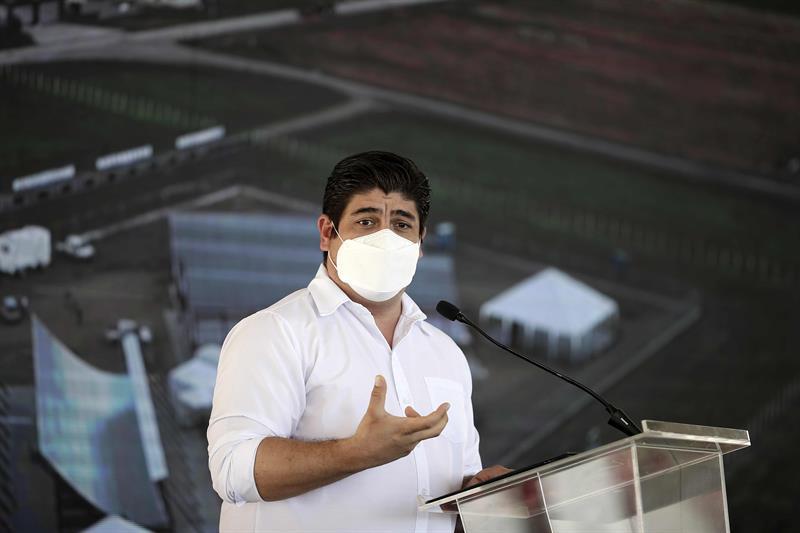RIO DE JANEIRO, BRAZIL – The President of Costa Rica, Carlos Alvarado, expressed this Tuesday in his annual report before the Congress that the main objectives for his last year of mandate are to defeat the covid-19 pandemic and the fiscal crisis, as well as to have a credit with the International Monetary Fund for US$1.75 billion.

In his penultimate speech before the deputies, the president, who will end his 4-year government on May 8, 2022, said that “our most pressing challenge is the pandemic and its impact on the economy and unemployment” and that the objective is to “defeat” the pandemic and the fiscal crisis that has worsened with it.
“Our health care system has been stretched to the limit, and that is why we have taken measures that seek to slow the rate of contagion. We have sought at all times the best possible balance between the health of individuals and the support of households,” said Alvarado.
Alvarado pointed out that last December 23, Costa Rica became the seventh country in the world to have the vaccine against covid-19. Still, he regretted the slowness in the deliveries because, according to him, rich countries have monopolized 54% of the produced vaccines.
He stressed that Costa Rica has agreements with Pfizer, AstraZeneca, and the Covax mechanism to vaccinate by the last quarter of 2021 at the latest, at least 3.5 million people country’s adult population.
He also announced an investment of US$500 million for hospital infrastructure.
AGREEMENT WITH THE IMF
Alvarado said he was confident that together with the vaccination, the country would be able to reactivate the economy, but warned that it is urgent to stabilize public finances, so he urged the deputies to approve the agreement reached with the International Monetary Fund (IMF) for a credit of 1.75 billion dollars, accompanied by an agenda of projects to reduce expenses.
“The agreement with the IMF is the vaccine for the stability we need, the present and the future generation needs it”, he said.
Alvarado defended that the agreement with the IMF does not imply layoffs, salary reductions, or privatization of institutions. Still, it does reduce public spending and generates fresh income through “progressive taxes”.
The president said that with the tax reform approved in December 2018, he had the country on a “path of sanitation” of its public finances, but affirmed that the pandemic came to disrupt that process, caused a 4.1% drop in the economy in 2020 and made unemployment reach 24% in the middle of last year.
The president said that the government’s actions to reactivate the economy contributed to the fact that unemployment has been reduced little by little and is currently at 18%, which, he said, “is still too high”.
INFRASTRUCTURE, ENVIRONMENT, AND TRADE
Among the main achievements of his government, Alvarado highlighted the development of road infrastructure works that were paralyzed for years in various corners of the country, ranging from expansion of roads to tourist areas to the completion and modernization of roads in the metropolitan area.
“We have reactivated the construction of infrastructure as it has not happened for many years, but there is still a long way to go”, he said.
Alvarado anticipated that he would send to Congress a credit that will allow that by 2026 all ballast roads in the country will have asphalt coverage and that he expects support for an electric passenger train project in the metropolitan area, whose first phase would begin in 2025.
In environmental matters, Alvarado urged the deputies to approve the Escazú Agreement, the first environmental treaty in Latin America, and reject any attempt to promote oil exploration and exploitation.
Regarding trade, the governor highlighted that the country’s exports increased 1.9% in 2020 and that for the first quarter of 2021, the increase was 11%.
Source: efe

